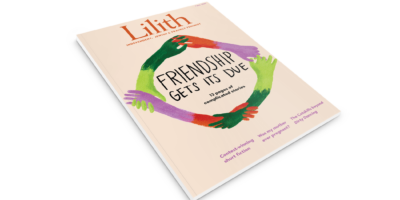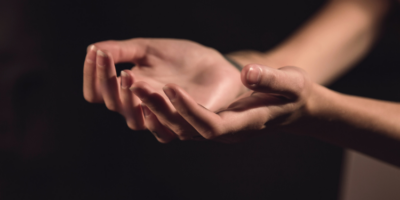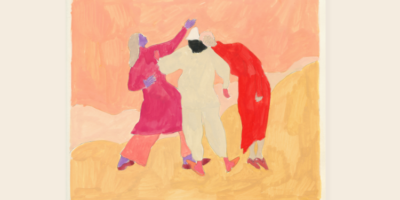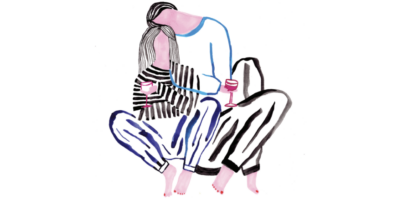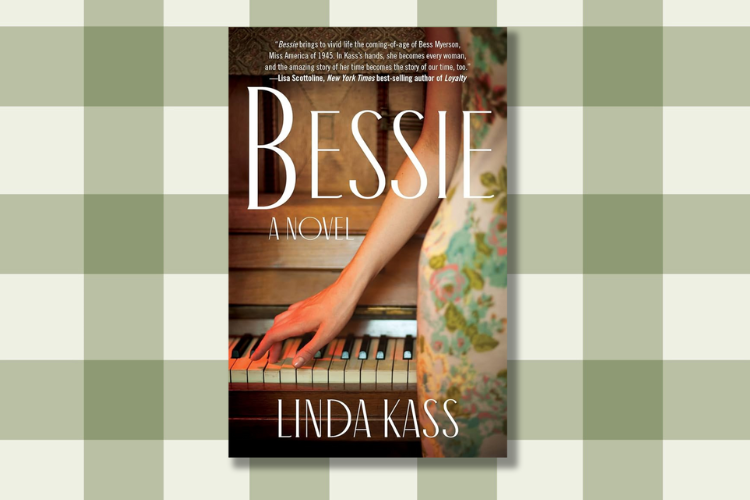
The First Jewish Miss America
Bess Myerson, the first and to date only Jewish Miss America, is the subject of Linda Kass’ third book, Bessie: A Novel (She Writes Press, $28). The richly-drawn story is heavily reliant on archival mate- rials, nonetheless, Kass’s Author’s Note makes clear that the book is fiction, with invented conversations and encounters that are woven into a fact-based narrative.
It’s compelling.
Bess Myerson, born to working-class Russian immigrants in 1924, was reared in the all-Jewish Sholem Aleichem Cooperative Houses in the Bronx. According to Kass, Myerson started life as a gawky, insecure kid. A head-or-more taller than most of her peers, she was one of three daughters crammed into a too small apartment that afforded little privacy. Her mom, Bella, suffered from depression but was adamant that her children achieve independence. For Bella, this meant marriage coupled with a job teaching music.
Bessie was, to a point, compliant. Deemed a piano prodigy, she took lessons with the Dorothea LaFollette, a well-regarded pianist whose spacious Manhattan apartment had a view of Central Park. Bess was enthralled, not only by LaFollette’s wealth, but by the neighborhood’s diversity and proximity to nature. The lessons paid off. By 1937 Bessie was enrolled in the highly-competitive High School of Music and Art and, for the first time, studied alongside Christian students, some of them non-white. She found the experience eye-opening.
Hitler’s ascent, however, added an unsettling undercurrent and like most of the Jewish community, she was disgusted by the pro-Nazi support that was festering. Manifestations of domestic anti-Semitism became a preoccupation.
And then there was sexism. Although Myerson was consistently praised for her musical acumen during her four years at M and A, she was dismayed that every academic honor given out at graduation went to a male. Her awards? Being named Prettiest Girl and Girl with the Most Charming Smile.
Still, she persevered.
Her next stop was Hunter College, then tuition-free and all female. Throughout her enrollment she worked to help support her family, teaching piano and babysitting. But despite the ongoing war and financial precarity, Myerson joined The 68 Club, a group of women who were 5′ 8″ or taller. Later, a serendipitous meeting with John Pape, an amateur photographer, led to a $5 an hour job posing for him. While she hoped that Pape’s photos would open doors, she was rejected by modeling agencies who told her flat-out that they wanted “All American Types” rather than ethnic beauties.
The rejection stung—that is, until Pape’s photos provided her with entry into the 1945 Miss New York City competition. While she believed she was a long shot, her older sister encouraged her. “Look,” Sylvia told her, “there’s a talent component, and a win means cash and a future. Don’t think of it as just a beauty contest.“
She didn’t and won.
Later that summer, she competed in the Miss America pageant in Atlantic City. Once there, competition director Lenora Slaughter urged her to Anglicize her name—changing it to Betty Merrick—but Myerson refused. It was sheer chutzpah since she was the only Jew and the only first-generation American in the contest.
Once again, the unexpected hap-pened, and just days after World War II ended, Bess Myerson was crowned Miss America, 1945. It was a staggering victory, requiring product endorsements, travel, and frequent public appearances. Sleaze was ubiquitous on the tour.
Myerson responded by signing on to work with the Anti-Defamation League where she helped launch the You Can’t Be Beautiful and Hate campaign, a national project to denounce racial and religious bigotry.
Her whirlwind reign ended in 1946. She subsequently had several unsuccessful marriages but remained committed to fighting anti-Semitism and racism until her death in 2014. Her dream of becoming a concert pianist was never realized.
Kass’ evocation of Myerson, and the interplay between anti-Semitism, racism, sexism, and classism that she highlights, bring the mid-20th century into sharp focus. What’s more, Bessie uses a light touch to address the meaning and purpose of beauty pageants, leaving each reader to decide for themselves whether they should be continued or abolished.
Eleanor Bader is a freelance writer who specializes in covering domestic social issues.

